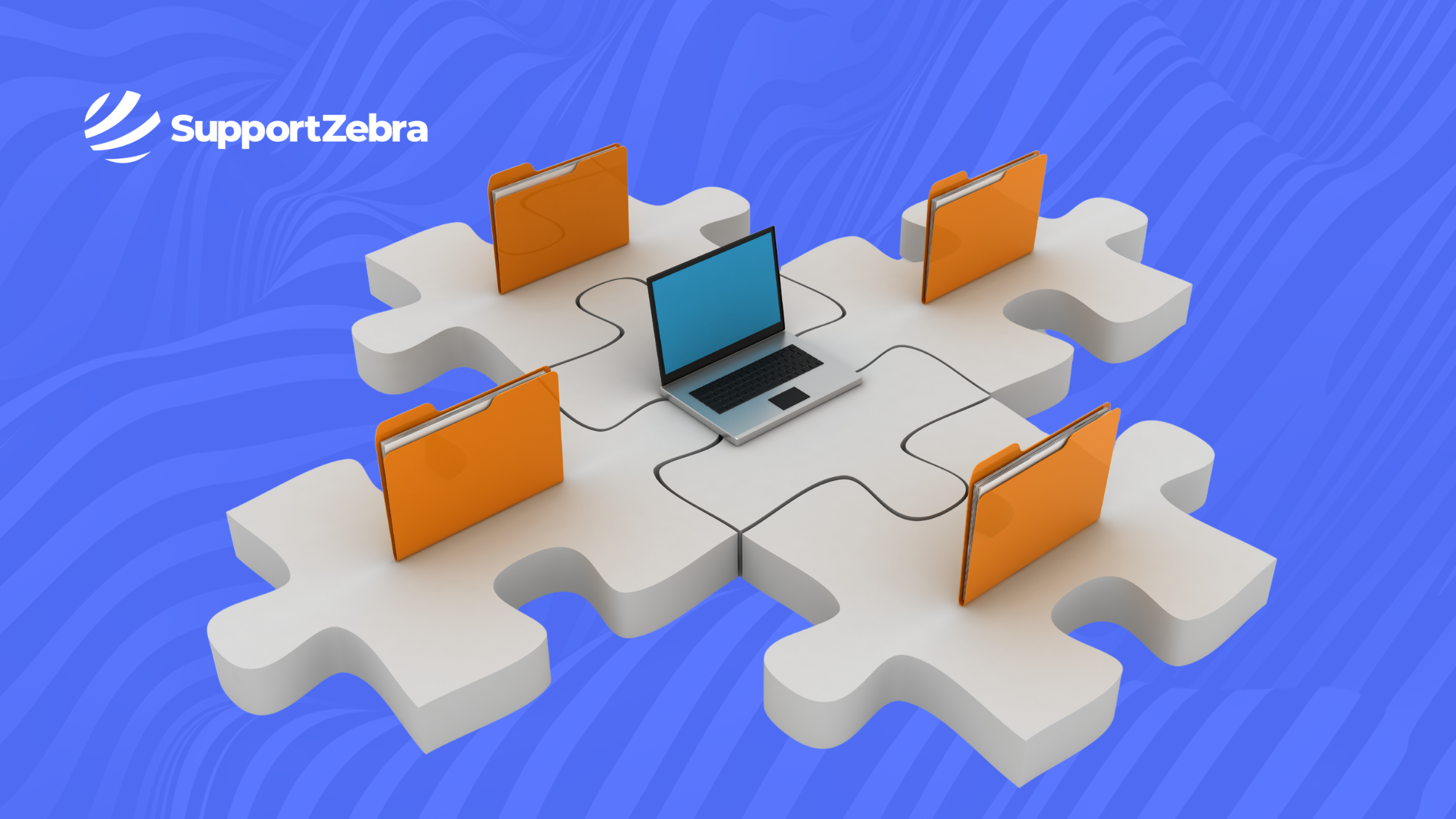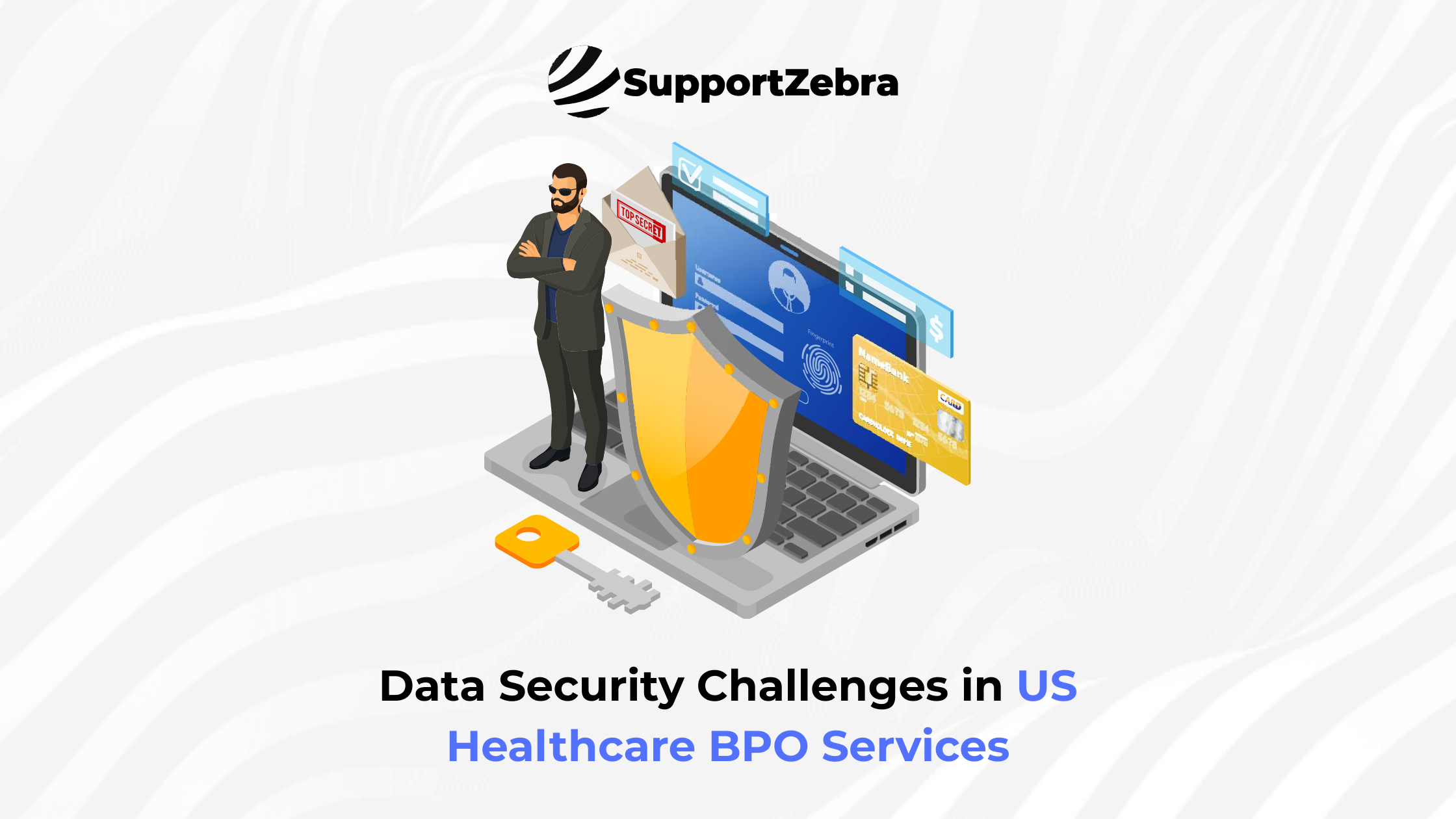Data Protection Challenges in Healthcare BPO
Key Takeaways:
- Patient data in healthcare BPO is highly sensitive, making strong security measures essential to protect trust and compliance.
- Cyberattacks, phishing, and insider threats are common risks that can cause severe financial and reputational damage.
- Staying compliant with HIPAA and other regulations is complex but non-negotiable for outsourcing partners.
- SupportZebra ensures secure, efficient healthcare BPO with advanced safeguards, trained teams, and 24/7 monitoring.
Is the overwhelming labyrinth of data security mandates keeping you up at night? You’re not alone. For leaders in US Healthcare BPO, the fear of a catastrophic breach is a perpetual, low-grade hum of anxiety. It’s not just about compliance fines; it’s about shattered patient trust and irrevocable reputational collapse that can decimate your enterprise.
This escalating vulnerability demands a definitive resolution. SupportZebra provides the specialized expertise and ironclad frameworks to fortify your operations, ensuring your data and your future remain impeccably secure.
Understanding Why Data Security Matters in Healthcare
Patient information is highly sensitive. Records often include names, addresses, Social Security numbers, insurance details, and medical history. If this data falls into the wrong hands, the damage can be severe. Patients may face identity theft. Hospitals may face lawsuits and loss of trust. Regulators may issue heavy fines.
Data security in healthcare outsourcing is not just about protecting files. It is about keeping patient trust, meeting legal requirements, and making sure daily operations run smoothly. Without proper security, a BPO partner can become a weak link in the system.

Common Threats to Data Security in Healthcare BPO
Healthcare BPOs face a wide range of risks. Some come from outside attackers, while others result from mistakes within the organisation.
The most common threats include:
- Cyberattacks – Hackers often target healthcare data because it is valuable on the black market.
- Phishing scams – Employees may receive fake emails that trick them into sharing login details.
- Malware and ransomware – Viruses can lock systems and demand payment before data is restored.
- Insider threats – Staff members with access to records may misuse or steal information.
- Weak access controls – If passwords or user permissions are not managed well, data may be exposed.
Each of these threats can cause major financial and reputational damage. Preventing them requires strong systems, ongoing training, and strict monitoring.
Regulatory Compliance Challenges
The healthcare industry in the US is one of the most regulated sectors. Outsourcing partners must follow strict laws, such as:
- HIPAA (Health Insurance Portability and Accountability Act) – Protects patient privacy and sets standards for handling medical records.
- HITECH Act (Health Information Technology for Economic and Clinical Health) – Promotes secure electronic health records and strengthens HIPAA rules.
- State-specific regulations – Some states, like California, have even tougher privacy rules.
For BPO companies, compliance is not optional. A single violation can lead to penalties worth millions of dollars. The challenge is that regulations often change. Keeping up with updates, training staff, and ensuring systems are compliant can be costly and complex.
Data Storage and Transfer Risks
Another challenge is how patient data is stored and transferred. Many healthcare BPOs use cloud systems to manage large amounts of data. While the cloud can be secure, it also increases risks if not handled properly.
Key risks include:
- Unsecured networks – Transferring data over weak connections can expose it to hackers.
- Third-party systems – If vendors or partners have weak security, they can become entry points for attacks.
- Improper encryption – Data that is not encrypted can be intercepted and read easily.
Outsourcing providers must use strong encryption, secure servers, and reliable transfer methods. Without these, patient data may be exposed during storage or movement.
The Human Factor in Data Breaches
Technology plays a big role in data security, but people are often the weakest link. Many breaches happen because of human error, not technical failure.
Examples include:
- Employees clicking on phishing emails.
- Weak or reused passwords.
- Lost or stolen devices with unprotected patient data.
- Poor training on security practices.
Healthcare BPOs must invest in staff training, strict password policies, and regular security drills. The goal is to make sure every employee understands the importance of protecting data.
The Cost of Data Breaches in Healthcare
When a breach happens, the financial and reputational costs are huge. According to studies, healthcare data breaches are among the most expensive of any industry.
The impact includes:
- Financial losses – Paying fines, legal fees, and compensation.
- Downtime – Operations may slow down or stop during recovery.
- Reputation damage – Patients may lose trust and move to competitors.
- Long-term risks – Stolen data can resurface years later, causing more harm.
For healthcare providers, the cost is not just about money. It is also about patient safety and trust. This is why data security must be treated as a top priority.
Best Practices for Strengthening Data Security
While the risks are real, they can be managed with the right approach. Healthcare BPOs can follow several best practices to protect patient data:
- Strong encryption for all stored and transferred data.
- Multi-factor authentication (MFA) for user logins.
- Regular audits and compliance checks to stay updated with laws.
- Employee training on security awareness and phishing prevention.
- Access control policies to limit who can view sensitive data.
- Incident response plans to react quickly if a breach occurs.
By following these steps, BPOs can reduce the chances of a breach and build stronger trust with healthcare providers.

Balancing Efficiency with Security
One of the biggest challenges in outsourcing is finding the right balance between efficiency and security. Healthcare providers want fast, cost-effective services. But cutting corners in data protection can lead to greater risks.
The best BPO partners understand that security and efficiency go hand in hand. They use advanced tools, hire skilled staff, and follow compliance rules without slowing down operations. This balanced approach helps both providers and patients feel safe while still enjoying the benefits of outsourcing.
Why SupportZebra Is the Right Partner for Secure Healthcare BPO
Choosing the right outsourcing partner can make or break data security efforts. At SupportZebra, we understand how critical patient information is. We combine strict compliance with HIPAA and other US regulations, advanced encryption systems, and ongoing staff training to protect sensitive data at every stage.
Here’s why healthcare providers trust us:
- We use robust data security frameworks that prevent breaches before they happen.
- Our teams are trained in HIPAA compliance and security awareness.
- We invest in 24/7 monitoring and incident response, so threats are detected early.
- We create customized solutions that balance efficiency with strong protection.
When you partner with SupportZebra, you get more than outsourcing. You get a team that values patient safety, compliance, and trust as much as you do.
👉 Ready to secure your healthcare operations with a trusted BPO partner? Contact SupportZebra today.

